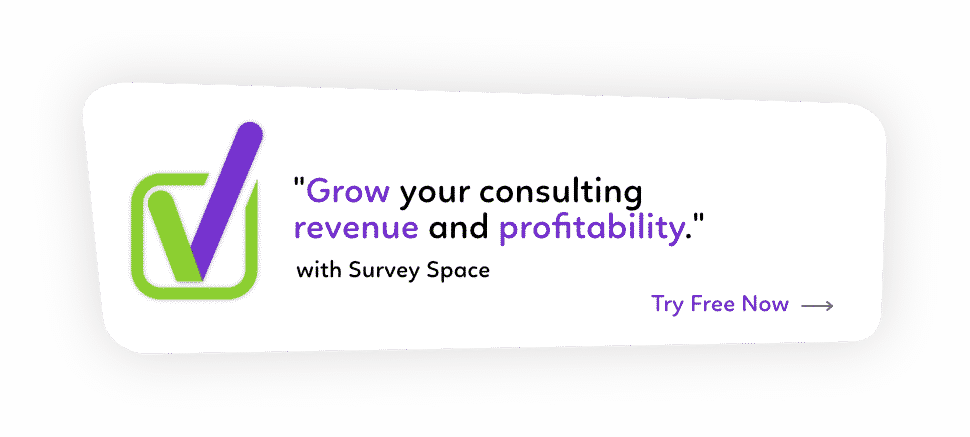How to Find Clients for Business Consulting
Whether you’re just starting out or you’ve been in the game for a while, the biggest issue is always how to find clients for business consulting. In the modern world there’s so many ways you can find new clients, and you’re no longer limited to your geographic location. While this is great, it also widens the competition pool and means there’s a whole lot of marketing ideas to get your head around.
Here’s just some of the ways you can find new clients consistently.
Understand Your Ideal Clients
Firstly, you need to understand the type of clients you want. This is important, because getting the right clients can boost your productivity significantly. For example, if you have more experience in certain industries, those are the businesses you should target first. Not only will your experience be more appealing to them, but you’ll also find the work easier. More efficiency equals more time to take on more clients.
You may even want to consider the size of business you’re trying to land. This takes some honest self-reflection sometimes, but it’s worthwhile. For example, if you’re just starting out and are still finding your feet, aim for smaller clients. This isn’t to say you shouldn’t aspire to great things. But it’s all about knowing and understanding when your skills and experience reach a level that you can confidently grow your client base.
Grow Your Online Presence
It’s no surprise that one of the best ways to find clients for business consulting is online. We live in the digital age, so you should be harnessing all the tools available to you. Here’s a few of the key areas you should target.
Social Media
Even business owners and decision makers use social media when looking for content and services. In fact, 91% of executives name LinkedIn as the best place to find relevant content. These people are your target audience, so it’s important to meet them on the social channels they really use.
To start with, it’s as simple as setting up clear, concise profiles on all of the major social channels, and you can start sharing content regularly. Keep your posts short, sharp and to the point. Once you work out which channel is providing the best engagement, start to narrow your focus accordingly.
Blogs
Content is one of the key marketing tools of 2020, and probably beyond. Everyone uses the internet to find solutions to problems now, and you need to provide them. Regular posts on your blog are a great way to do this. Think of your target audience and the type of things they’re likely to be searching for online. Target your articles accordingly, because a well-maintained blog also adds credibility to your online profile. You can establish yourself as a trusted industry professional, and this is great way of generating website traffic.
If you don’t have the time or the SEO knowledge to produce content effectively, that’s no problem. Hire someone to do the work for you!
Video
Video, much like your blog, is an important method of connecting with potential customers. Just like written content, your clients are also hungry for videos. You can use video for anything you like, but it’s often a ‘how to’ style video that will generate the most interest. If you can release even a monthly video where you explain something that’s important to your clients, you can continue to enhance your online reputation.
Digital Marketing
Digital marketing is a very broad term, but to make it simple, let’s break it into two main methods – paid, and unpaid.
Paid Marketing
Obviously, your budget will determine how much you can do here, but there are plenty of effective paid advertising methods you can use. It’s good to try out several different ones and monitor which works best.
For example, you may want to run Facebook, Google and LinkedIn ads. These are all pay-per-click (PPC), meaning you pay based on how many people click on your ad. You’ll soon work out which is best for your audience.
It’s important to note that when paying for ads, you need to have a solid plan for converting leads into sales. Ads will bring clients to your website or landing page, but you need to ensure these pages are designed to nurture leads into taking up a service offer.
Unpaid Marketing
We’ve touched on this already, but all of your online activity through social media, video, blogs – it’s all marketing. You just don’t have to pay for it. The best thing about having a well organised content plan is you can duplicate. For example, you could produce a really in-depth article on a topic and post it on your blog. You can then share the blog throughout social media. You can also use the content as the basis for a series of videos, which are likewise shared on social media.
Think of how to maximise your work and get the most out of the content you produce.
Seminars and Conferences
There’s two aspects to seminars and conferences that can help you find clients for business consulting. Firstly, the obvious one is it’s a great networking opportunity. Attending training courses, conferences and seminars give you an opportunity to meet fellow consultants as well as clients. You may even find other consultants who you can work alongside if you have different areas of expertise.
Secondly, as your experience and profile grows, you should be looking to be a part of such conferences. Speaking engagements give you a captive audience of potential customers. It also does wonders for your reputation as an expert in your field.
Make Surveys Your Best Friend
Surveys are a great way to commence, and then grow, consulting assignments. Here are 8 surveys that consultants should know about. Surveys can be used to gather information, ideas and data for the benefit of your clients, combined with consulting revenue generating opportunities. Survey examples include a SWOT Analysis, a customer survey to identify their needs, an employee engagement survey to find out what the people on the front-line would like to see improved and a Net Promoter Score survey (NPS®). These surveys involve consulting revenue opportunities in planning, project management, meetings, workshop facilitation, action planning and implementation.
Finding clients isn’t all about marketing. It’s also about being great at what you do and working smarter. You probably hate the idea of cold-calling or emailing potential clients to advertise your services. It feels intrusive, we all hate spam emails, and it generally makes you uncomfortable. But what if you could use email marketing in a multi-beneficial way?
As an example, you could come up with an email list of clients and ask them to fill out a survey. This can even be done through social media platforms – maybe even offer a prize for people who complete it. Now, the survey topic is up to you – but it’s best to keep it business related. You don’t even need to make it about yourself.
At the end of the process you’ve done three things:
- Gained valuable information about what businesses need
- Established a connection with a potential client
- Shown yourself to be a forward thinking, proactive consultant
By using easily customisable surveys, you’ve locked in to an extremely valuable marketing tool. You’ll also use them in several other ways such as expanding business consulting engagements, so make surveys your best friend!
Hopefully this has helped you answer a few questions on how to find clients for business consulting. Like any business that you’re operating by yourself, it can be a hard slog to get up and running. But, if you’re using the right tools and planning your strategies well, there’s no telling how far you can go.





